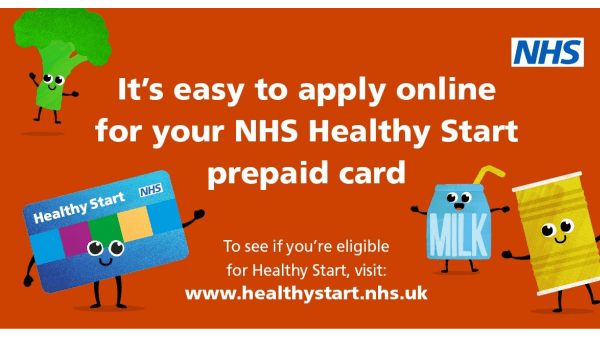
You will remember that this summer, the International Fresh Produce Association (IFPA) BB #:378962 came out with its “Fruit and Vegetable Moonshot” for September’s White House Conference on Hunger, Nutrition, and Health.
Its suggestions included providing medical prescriptions for fresh produce for certain patients as well as making produce expenditures eligible for reimbursement under Health Savings Accounts (HSAs) and Flexible Spending Accounts (FSAs).
These suggestions, although worthy, seem cumbersome. The don’t seem likely to go far enough to significantly increase American fruit and vegetable consumption.
In all frankness, the new crown that your dentist says you need will suck up a huge chunk of this year’s FSA money. You will probably not remember to use the rest to buy fresh peaches. Even if you can.
Another idea comes to us from Britain’s National Health Service (NHS)—its universal health plan.
As you may know, every civilized nation on this planet has universal health care coverage except for the United States.
The NHS has a Healthy Start plan for those who are pregnant or have parental responsibility for at least one child under the age of 4.
The program only subsidizes “certain types of milk, infant formula, fruit and vegetables.”
The program only subsidizes “certain types of milk, infant formula, fruit and vegetables.” https://www.healthystart.nhs.uk/what-you-should-buy/
Exclusions: products with added ingredients like fat (oil), salt, sugar or flavorings, such as canned tomatoes and herbs; kidney beans in chili sauce; French fries, or onion rings; juiced or precooked items; fruits in syrup; and smoothies.
Note that food items with heavy amounts of sugar or ones that border on junk—French fries, onion rings, fruit in syrup—don’t qualify.
The benefits are not generous, ranging from £4.25 ($5.02 according to current exchange rates) to £8.50 ($10.05) a week for each child. Annual family income (at least in certain instances) has to be below £16,190 ($19,138.50).
So, I don’t think that Healthy Start provides the perfect map to promote healthy eating for young Britons. But it does suggest one way of encouraging fruit and vegetable consumption by a vulnerable part of the population.
I personally think that the most important step federal policy can take to reduce dietary-related disorders (and, incidentally, increase produce consumption) would be to exclude all junk and snack foods from eligibility for the food stamp program.
That would do more than all the nutritional preaching and admonition, which have already proved to be more or less ineffective.
But I think something like the Healthy Start program—which is rigorous about what it will pay for as genuinely nutritious food—could form part of the solution.
You will remember that this summer, the International Fresh Produce Association (IFPA) BB #:378962 came out with its “Fruit and Vegetable Moonshot” for September’s White House Conference on Hunger, Nutrition, and Health.
Its suggestions included providing medical prescriptions for fresh produce for certain patients as well as making produce expenditures eligible for reimbursement under Health Savings Accounts (HSAs) and Flexible Spending Accounts (FSAs).
These suggestions, although worthy, seem cumbersome. The don’t seem likely to go far enough to significantly increase American fruit and vegetable consumption.
In all frankness, the new crown that your dentist says you need will suck up a huge chunk of this year’s FSA money. You will probably not remember to use the rest to buy fresh peaches. Even if you can.
Another idea comes to us from Britain’s National Health Service (NHS)—its universal health plan.
As you may know, every civilized nation on this planet has universal health care coverage except for the United States.
The NHS has a Healthy Start plan for those who are pregnant or have parental responsibility for at least one child under the age of 4.
The program only subsidizes “certain types of milk, infant formula, fruit and vegetables.”
The program only subsidizes “certain types of milk, infant formula, fruit and vegetables.” https://www.healthystart.nhs.uk/what-you-should-buy/
Exclusions: products with added ingredients like fat (oil), salt, sugar or flavorings, such as canned tomatoes and herbs; kidney beans in chili sauce; French fries, or onion rings; juiced or precooked items; fruits in syrup; and smoothies.
Note that food items with heavy amounts of sugar or ones that border on junk—French fries, onion rings, fruit in syrup—don’t qualify.
The benefits are not generous, ranging from £4.25 ($5.02 according to current exchange rates) to £8.50 ($10.05) a week for each child. Annual family income (at least in certain instances) has to be below £16,190 ($19,138.50).
So, I don’t think that Healthy Start provides the perfect map to promote healthy eating for young Britons. But it does suggest one way of encouraging fruit and vegetable consumption by a vulnerable part of the population.
I personally think that the most important step federal policy can take to reduce dietary-related disorders (and, incidentally, increase produce consumption) would be to exclude all junk and snack foods from eligibility for the food stamp program.
That would do more than all the nutritional preaching and admonition, which have already proved to be more or less ineffective.
But I think something like the Healthy Start program—which is rigorous about what it will pay for as genuinely nutritious food—could form part of the solution.
Richard Smoley, contributing editor for Blue Book Services, Inc., has more than 40 years of experience in magazine writing and editing, and is the former managing editor of California Farmer magazine. A graduate of Harvard and Oxford universities, he has published 12 books.




